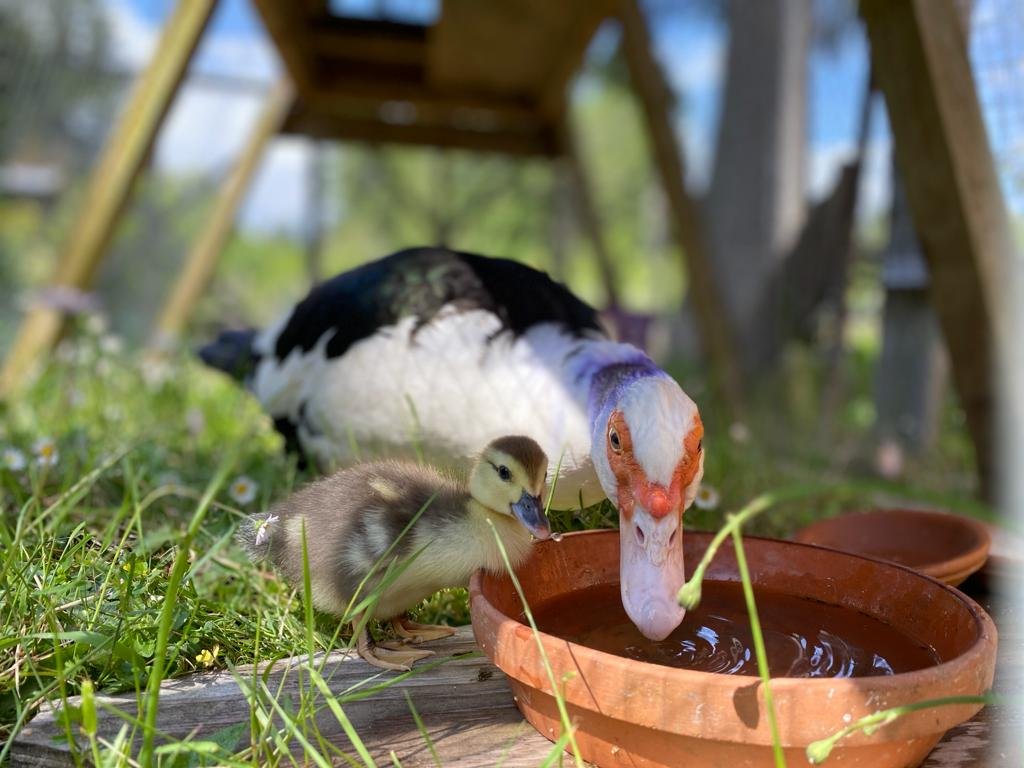How to Join or Start an Ecovillage
Many types of intentional communities help with ecological preservation based on the lower carbon footprint that results from shared resources. In addition, many add energy-saving features and avoid fossil fuels. As a step beyond those laudable efforts, the ecovillages we feature differentiate themselves even further, by recycling greywater and/or human waste in a safe but non-standard manner on site. Many ecovillagers attempt to increase their self-sufficiency thru on-site food production. If you yearn to live in the most eco-conscious way, you could join or start an ecovillage. Check out our Team Up page and the Examples section below to see which are looking for a founders’ team or members.
6
Steps to join or start an ecovillage, a sustainable commune, or agrihood
- Live in one to learn first hand! See the Examples section below to find one that seems the closest to the type you intend to create.
- Add to your leadership team or advisory board someone who has familiarity with permaculture and someone who has lived in intentional community.
- Use ICmatch.org and Wwoof.org to build up your core leadership team. These sites can also help you find values-aligned volunteers who might work on site in exchange for room and board, while assessing your IC as a possible long-term fit. Create local events. Partner with similar groups on the meetup website to invite others to learn and volunteer with you.
- If you are planning for a large development, team up with local policymakers to get your site zoned for multiple uses, whether urban, rural, or remote.
- There are an endless variety of projects your group could support. Your biggest challenge might be narrowing it down to a manageable number of projects. Ecovillages focus on such diverse projects as community supported agriculture, partners of local government for disaster preparedness and food security, event hosting, lodging and tours, green burial space, and community education. These can help provide a livelihood for your members.
- Create your business plan and grant proposals. To be eligible for more grants, you might team up with a university or non-profits such as land trusts. Team up with local community gardens or farms to share tools and learn tips about local growing.
Examples
ICmatch has put together lists of ecovillages, regenerative farms, and similar permaculture projects:
agrihoodliving.com: This listing includes “farm-to-table neighborhoods” or apartments with edible gardens. These often foster community connections.
Terre de la Reunion ecovillage: A founder details their story of starting with limited funds and persisting thru challenges. They were buoyed by serendipitous help to complete land purchase and achieve full functionality.
Sowing Circle community: Originally seven friends bought and renewed the depleted soil at restoration ecovillage, which is still functioning after 50 years. Their site uses composting toilets, greywater recycling, food forests with mostly native drought resistant plants, a pond with tree frogs that is their natural insect control, grazing to keep down brush and create a fire barrier. In addition to a self-sustainable food production, they provide wildlife habitat and education programs.
Long-standing notable examples of urban sites include Kailash Ecovillage in Oregon and LA Ecovillage. Long-standing rural ecovillages include Arcosanti in Arizona and Dancing Rabbit in Missouri. The New Mexico community of earthships in Taos hosts tours and workshops.
The Dervaes family’s urban farm in the Los Angeles area is growing 6000 lbs of food annually on 1/10th of an acre.
The Urban Farmer shows you how to turn urban and suburban yards into food production. You might use the resilience circles format, as many of them turn backyard gardening into a social event. These neighbors stay in their existing homes. Sometimes each becomes expert at a different type of food. One might have backyard chickens under fruit trees. Another might maintain a small greenhouse or cold frames.
Swan Lake, a new development in rural Ontario is getting started “a la brava” as an ecovillage. This description highlights the types of challenges these developments face, including how such groups often have little cohesion aside from their shared desire for a sense of self-sufficiency and affordable housing that they are willing to sacrifice comforts for.
Foundation for Intentional Community: See their listings of ecovillages you could visit to learn from or that may have openings to rent or buy into.
Consultants for Ecovillages
ICmatch can connect you with consultants who have deep experience in projects and living environments that thrive on close, sustained cooperation. These professionals are experts at guiding others through the unique opportunities and challenges of communal living.
The consultants listed below have subscribed to be featured on this page. For even more consultants with interest and expertise in this type of community, visit the consultants page linked in the header.
Members Interested in Ecovillages
ICmatch can connect you with communitarians who have similar interests and values. The members listed below have subscribed to be featured on this page. For even more members with interest in this type of community, visit the Match for Free page linked in the header.
Resources
If you are looking for existing ecologically sustainable communities, IC.org searches can help you sort out which existing intentional communities in North America have a self-sufficiency focus. See also the Global Ecovillage Network, NuMundo.org/centers (emphasis on Central & South America), and Ecobasa.org (emphasis on Europe). Seeds for Eco Communities has a worldwide list.
Grants relevant to ecovillages in Canada
Grants for ecological projects in the U.S.: This list can be searched by state. These grants or scholarships can be applied for by individuals. You do not need to have non-profit status or be under the umbrella of a government agency. We are working on further refining the list by topic.
World Permaculture MAP: consultants, information, accreditation with a Permaculture Design Course
Ecovillagers Cooperative: a real estate investment co-op (REIC) investing exclusively in community land co-ops (CLC) created by resident members. People own shares, and renters rent from their co-owned organization. They can sell shares, leave, or buy more shares as an investment. Benefits include local ownership and management, no gentrification, plus wealth-building. A REIC provides a network, education, incubator, capital, development, and management.
Ecovillagers Alliance: funding and legal structures. Ecovillagers Alliance is organizing a real estate investment co-op that complies with securities law. It places the building structures within a larger land development. “Every household and community business can own equity and build it over time, while every owner’s vote will remain equal.” One of the founders explained:
We aim to carve out space to work collectively and radically in a society that maintains a dominance model. We are implementing democracy, partnership, and ecological preservation in an integral framework. After research, we concluded that cooperative architectures presently existing are a thin veneer of democracy over a dominance-oriented model. What’s the closest model to what we are doing? A community land cooperative. It’s essentially a corporate landlord owned by its tenants. It is a rental real estate business recognized by local law. The problem with this is that no group of tenants can afford to do this if they’re not already wealthy. The existing economic model depends upon structural inequities to perpetuate itself. We are subverting the caste structure. We are providing a way to rent and own at the same time. Renting is more flexible. A next step closer to democratic housing is to own shares instead of owning properties. It’s not a community land trust, but similar. Properties are owned in perpetuity by the collective. Members have a lease contract. They may have a voting share and/or an equity share. Governance is by sociocracy. (J. Rothschild, personal communication, March 20, 2021)
Manual for urban ecovillages: learn from others’ mistakes. The Ecovillage Library podcast is another excellent resource. Project Regeneration has relevant sections on the nature of cities and sustainable buildings. Regen Villages focus on technology solutions for agrihoods. If you are a rural ecovillage, the ICmatch pages for small farms and ranches will have relevant resources also.
FB Eco-Village and Intentional Community Discussion Group: Find current projects, including international. Point others to your ICmatch profile to showcase your relevant skills and help you find a good cultural fit.
Wild Community Fund and Foundation: a Social Enterprise Smart Village investment, development and management, and philanthropic fund. They secure land in trust and steward it for our collective future. In the process we create villages, permaculture farms, regenerate forest, create social enterprises and micro businesses, help young farmers get a start, provide affordable housing, run retreats and wellness programs, and more.
Self-sufficiency and sustainability page: Find additional relevant resources here.
More reading and viewing resources for how to join or start an ecovillage:
- Bang, J. M. (2005). Ecovillages. New Society Press.
- Bang, J. M. (2007). Growing eco-communities: Practical ways to create sustainability. Floris Books.
- Drecovillage. (2014). Full-length tour of Dancing Rabbit Ecovillage at their 2013 open house.
- Nelson, A. (2018). Ecovillages: Sustainability and system change. In Small is necessary: Shared living on a shared planet (pp. 130-158). Pluto Press. doi:10.2307/j.ctt1zk0mpz.12
- Stolz, C. J. (2020). Intentional communities as drivers of societal change towards sustainability? Understanding community advocates’ social representations of change. https://stud.epsilon.slu.se/16332/1/stolz_c_j_201211.pdf
- Train for natural building
- Train for permaculture with Verge. David Holmgren offers many resources for permaculture, online and in books.
- Permaculture Magazine
- A 3-page overview of the benefits of and need for ecovillages
- You might be an ecovillager if…







